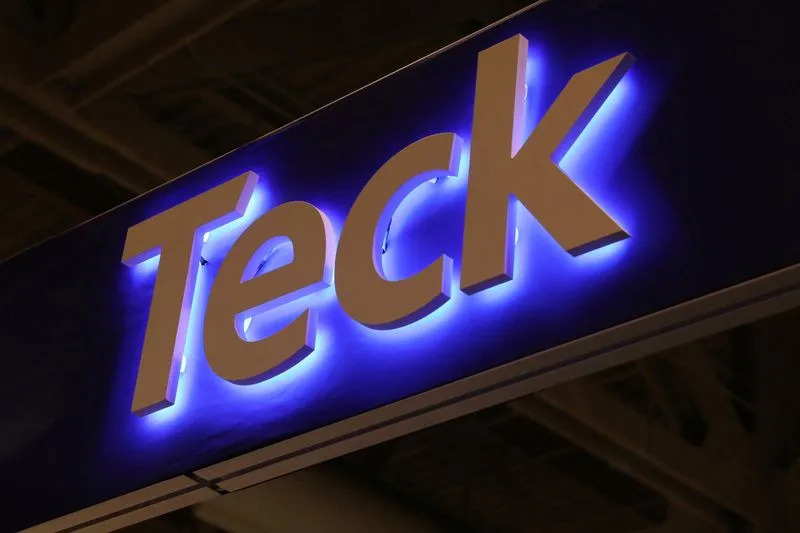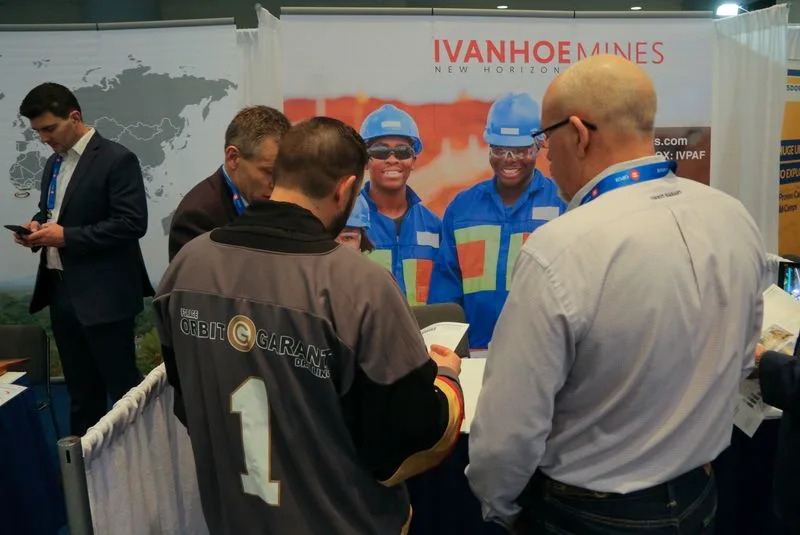Divya Rajagopal
Wed, March 8, 2023



Visitors to the Ivanhoe Mines booth speak with a company representative during the PDAC convention in Toronto
By Divya Rajagopal
TORONTO (Reuters) -Canada will not force Chinese state-investors in three of its large mining companies to divest stakes, as such a move would create policy uncertainty, the natural resources minister told Reuters.
In November, Canada had asked three Chinese companies to sell their stakes in Toronto-listed lithium explorers following a national security review, drawing criticism from the mining industry and raising questions about the future of other Chinese investments in the Canadian mining sector.
"If you start looking backwards at investments, it will create all kinds of uncertainty about whether an investment is ever really an investment," Natural Resources Minister Jonathan Wilkinson said in an interview late on Tuesday on the sidelines of Prospectors and Developers Association of Canada (PDAC) conference in Toronto.
Three of Canada's largest mining companies - Teck Resources, Ivanhoe Mines Limited and First Quantum Minerals Limited, - count Chinese state-owned enterprises as their biggest single shareholder.
This is the first time Canadian government officials have clarified what the future holds for other Chinese investments in the three Canadian mining companies.
According to Refinitiv data, the sovereign wealth fund China Investment Corp owns a 10.3% stake in Teck, China's state-owned CITIC Metal Group owns 26% in Ivanhoe Mines while China's largest copper producer Jiangxi Copper Corp Ltd owns 18.3% in First Quantum Minerals.
Shares in First Quantum were up 3.6% on Wednesday, also helped by news that Panama's government and the miner had agreed on the final text for a contract to operate a key copper mine. Ivanhoe gained 2%, while Teck climbed 1.3%.
Canada's move late last year had worried smaller mining companies in the country who are looking to raise funds for exploration of critical metals.
Wilkinson added that Canada remains concerned over Chinese state-owned enterprises having "control" of Canadian mining companies through mechanisms such as long-term off take agreements, where buyers secure exclusive long-term supply of metals at certain price.
Canada and its allies are looking to decouple from China in an attempt to diversify their supply chain in battery metals.
In spring this year, Canada will introduce a revamped Investment Canada Act that will reject or impose conditions on foreign investments that the government considers a threat to its national security.
But Wilkinson clarified that Canada will continue to trade with China. "Of course Canada will continue to have trade with China, some of that may involve trade in critical minerals."
Ottawa's forced sale of Chinese investments in Canadian mining companies has further irked Beijing and added to the widening rift between the two countries. Diplomatic tensions between Canada and China have been running high since the detention of Huawei Technologies executive Meng Wanzhou in 2018 and Beijing's subsequent arrest of two Canadians on spying charges.
Last year, Canada released a new Indo-Pacific strategy to challenge China on human rights issues, and described China as an "increasingly disruptive, global power."
(Reporting by Divya RajagopalEditing by Denny Thomas, Nick Zieminski and Chizu Nomiyama)
No comments:
Post a Comment